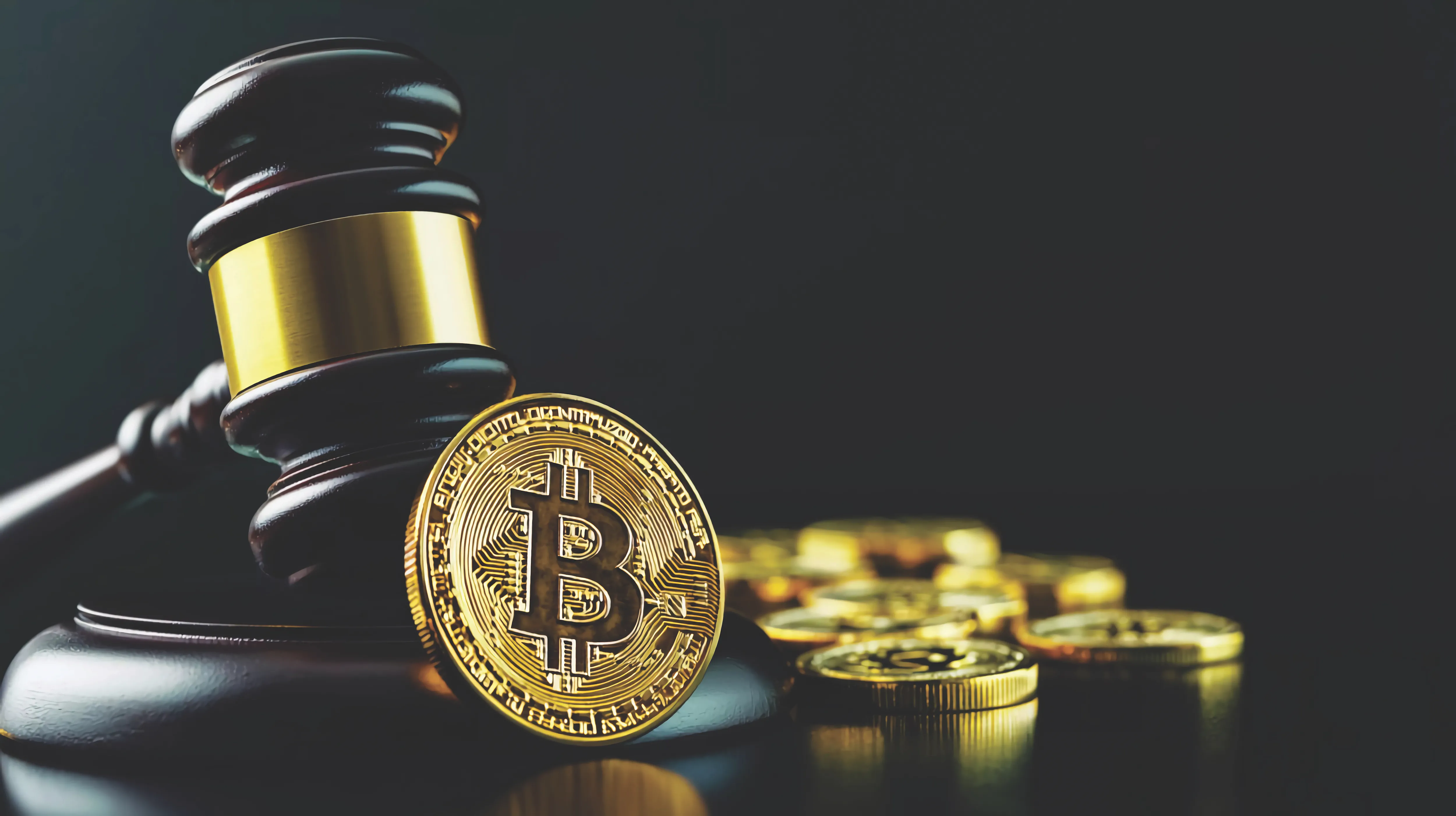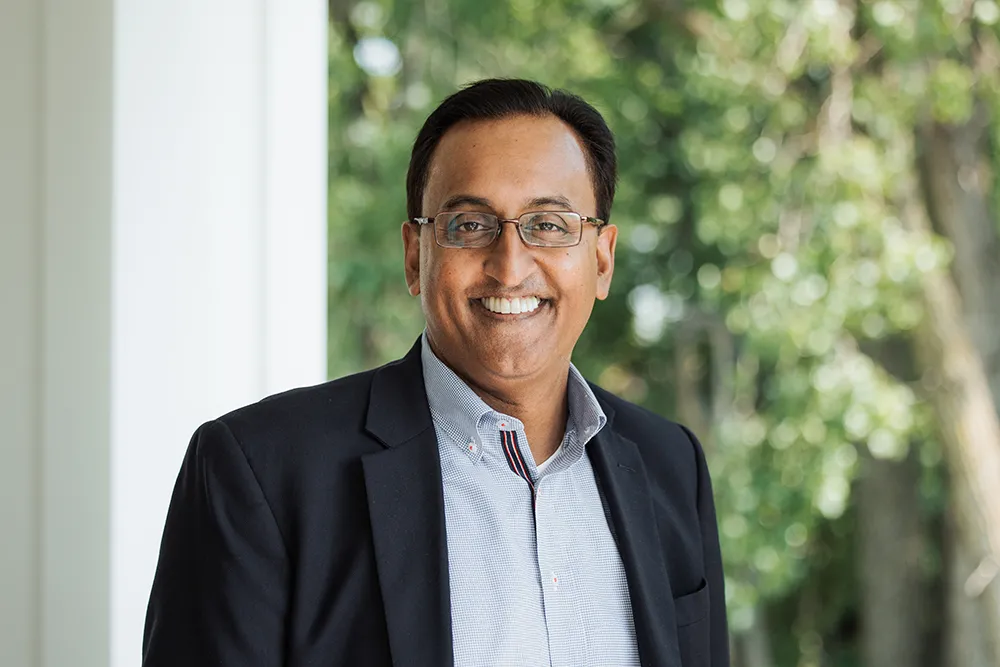The Corporate Speech Dilemma

Months before the 2024 election, University of Chicago law professors Anthony Casey, ’02, and Tom Ginsburg were furiously editing an opinion piece for The New York Times. They had written on why corporations should stay quiet on nonbusiness issues, and a new example to affirm that argument seemed to pop up every day.
Tesla was experiencing a high level of stock volatility after its CEO, Elon Musk, donated a reported quarter-billion dollars to the Trump campaign, angering progressive members of the company’s base. Meanwhile, numerous other companies—once champions of efforts such as diversity, equity, and inclusion (DEI) and environmental, social, and governance (ESG)—were in the news for rolling back those commitments in order to end growing backlashes from customers who identified as politically conservative. Like others watching, Ginsburg and Casey felt a sense of whiplash trying to keep up.
“The world was moving fast,” said Casey, the Donald M. Ephraim Professor of Law and Economics and faculty director of the Center on Law and Finance. “We had to be updating constantly before we got [the NYT op-ed] out.”
In an article published in the University of Chicago Business Law Review earlier in 2024, Casey and Ginsburg had written that corporations should consider a structured process for when to speak on issues. Akin to the University of Chicago’s Kalven Report (which likens an institution taking a collective position to censorship of those who disagree with that position), Ginsburg and Casey argued that corporations should insist on institutional neutrality for political and social issues. Rather than responding to a given moment—a war, a controversy, a social movement—executives could point to their policy of commenting only on what impacts business.
The news cycle was moving fast, but the polarization of corporate expression wasn’t new. About a decade ago, Ginsburg—the Leo Spitz Distinguished Service Professor of International Law and faculty director of UChicago’s Forum for Free Inquiry and Expression—said that there was a “virtue cascade,” a movement of consumers who wanted the companies they bought from to express messages in line with their own values. In 2018, Edelman’s Earned Brand study found that 64 percent of consumers wanted companies to take a stand on social issues.
“Taking a stand on controversial issues is difficult enough in a plural society,” Ginsburg said, “but it’s nearly impossible in a plural society with increasing polarization. For every customer you are satisfying with your corporate statement, you are alienating someone else.”
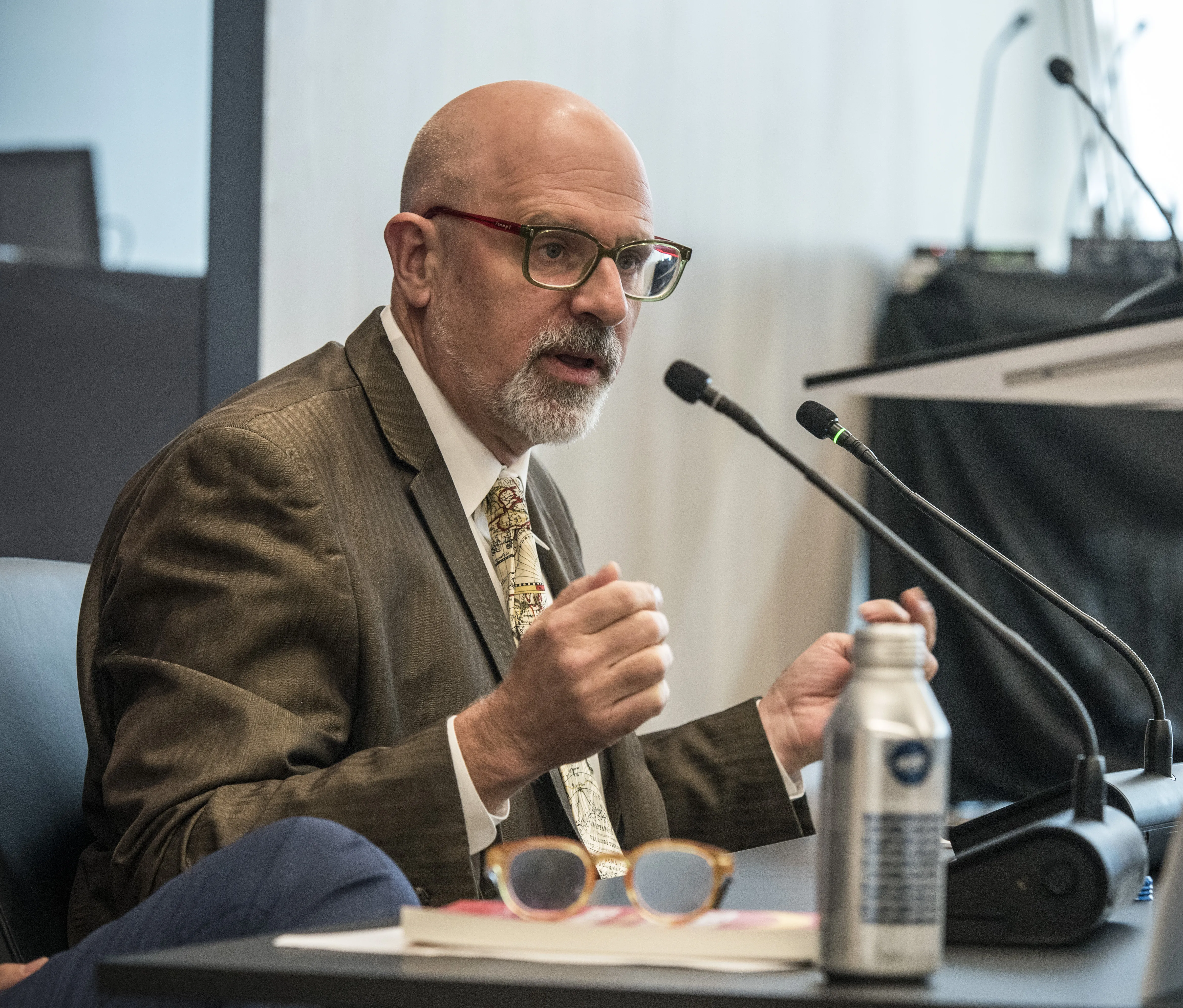
“Taking a stand on controversial issues is difficult enough in a plural society, but it’s nearly impossible in a plural society with increasing polarization. For every customer you are satisfying with your corporate statement, you are alienating someone else.” Prof. Tom Ginsburg
The Rights and Limits of Corporate Speech
Expression may have the potential to influence consumer behavior, but it’s a protected right for corporations just the same as for any US citizen. Consumers may boycott, shareholders may sell, but if a government threatens or punishes a corporation for expression, that raises a serious First Amendment concern, according to Professor Genevieve Lakier.
This wasn’t always true. Corporations aren’t mentioned in the Constitution, with most corporate expression wins coming via the courts. In the late 1800s, corporate lawyers often used the 14th Amendment to ensure equal treatment of corporations by states, especially regarding tax law. And expression rights of corporations were often taken away: the Tillman Act of 1907 banned corporate involvement in federal election campaigns.
It wasn’t until the 1970s that corporations began to gain the right of expression. In the 1976 Buckley v. Valeo decision, the US Supreme Court found that the quantity of expression is limited when the government limits election expenditures. Two years later, the Supreme Court issued a decision in First National Bank of Boston v. Bellotti that struck down a statute that restricted corporations from participating in state ballot measures.
Perhaps the best-known corporate speech decision is 2010’s Citizens United v. FEC. In this case, the Supreme Court ruled that laws restricting the spending of corporations and unions are not consistent with the First Amendment. This decision allowed vast quantities of corporate money to enter politics.
Publicly traded corporations receive an extra layer of scrutiny on their expression. Commercial entities have more disclosure obligations because they are subject to market regulations; they may be compelled to make financial disclosures related to investments and taxation.
Sometimes, what executives say can earn the ire of the government and investors, as their words often have a larger platform and carry more power. After Musk posted on Twitter that he was considering taking Tesla private and had “funding secured,” the Securities and Exchange Commission sued him for fraud. Musk settled with the SEC, forcing him to step down as chairman of the company, with Tesla and Musk each paying a $20 million fine. Shareholders also sued Musk over the tweet, as they believed the post cost them billions of dollars, although Musk was found not liable.

“Staying quiet on issues may pay off in the short term, but taking stands on bigger issues may lead to positive long-term results. For example, if a company wants to point to a bigger societal issue through its products, such as Patagonia’s environmental work, that may lead to a better corporate reputation.” Hajin Kim
There’s also the chance of corporations facing lawsuits over governance, Casey said. In 2023, Delaware courts rejected a lawsuit by a Walt Disney Company stakeholder to compel inspection of Disney’s books and records relating to its opposition to Florida’s “don’t say gay” law, which allegedly caused Florida governor Ron DeSantis to retaliate against Disney. The court’s decision held that stakeholders need a proper purpose for making a demand and emphasized the role the board of directors must play in deciding how to deal with controversial issues.
“That was the right outcome, but they still had the lawsuit filed,” Casey said. “And I think that’s the most likely legal consequence: A shareholder says your speech hurt our share value. That will be a losing lawsuit, but it may still be filed.”
The trend in courts for decades has been that corporate expression is protected. Even on controversial issues, like religious freedom, corporations have rights. In Burwell v. Hobby Lobby Stores, Inc., the Supreme Court ruled that privately held, for-profit companies can be exempt from regulations that its owners object to on the basis of religion.
Although corporations and people share the same expression rights, asking whether corporations are people is the wrong question, said M. Todd Henderson, ’98, the Michael J. Marks Professor of Law. Instead, he said that it’s a good practice to ask whether recognizing that group expands the expressive or religious freedom of individuals. If The New York Times can have free speech, Henderson said, doesn’t it make sense that Hobby Lobby also has religious rights?
The Discussion Around Speech
Lakier said that how free speech is discussed in the context of corporations has undergone change in recent years.
In the mid-2010s, many seemed to believe that corporate and commercial speech was too expansive and deregulated. But now, Lakier said, many believe that the system does not protect corporations from being swayed by government intimidation and other forms of informal control, like cutting federal funding.
The First Amendment is organized around a sharp divide between the public and private sectors, Lakier said. The public sector is under control of the government by way of the government speech doctrine—the government is allowed to express viewpoints, because that’s how a democratic government works. The independence and expression of the private sphere is also strongly protected by courts. But now, much of the scrutiny corporations face for expression comes from government influence.
“The problem is when the government is such a major player in the economic, political, social life of the country, especially the federal government,” Lakier said. “When it finances so many projects, when it does business with so many private actors, and when it has such a forceful bully pulpit, maintaining these formal divisions is not always enough to fully protect the independence of the private sector.”
This has been seen in universities and law firms. While not public corporations, both types of organizations are part of the private sector and have been targeted since the 2024 election. Multiple universities are under investigation, with others losing millions of dollars in grants, largely in response to 2024’s pro-Palestinian campus protests. The Trump administration has used executive orders to target multiple law firms by blocking their access to federal buildings, removing security clearances, and terminating government contracts. A number of these executive orders have been ruled unconstitutional in district courts.
Social media companies were in a similar position under President Joe Biden, Lakier said. Many believed that the Biden administration was overly aggressive in forcing social media platforms to report on information regarding the pandemic in ways the government deemed fit. Five social media users sued the Biden administration, but their lawsuit was struck down by the Supreme Court.
“Having a policy of staying silent on most issues can be freeing. But it must be done consistently for it to truly be freeing, otherwise the silence on certain issues stands out.” Prof. Anthony Casey
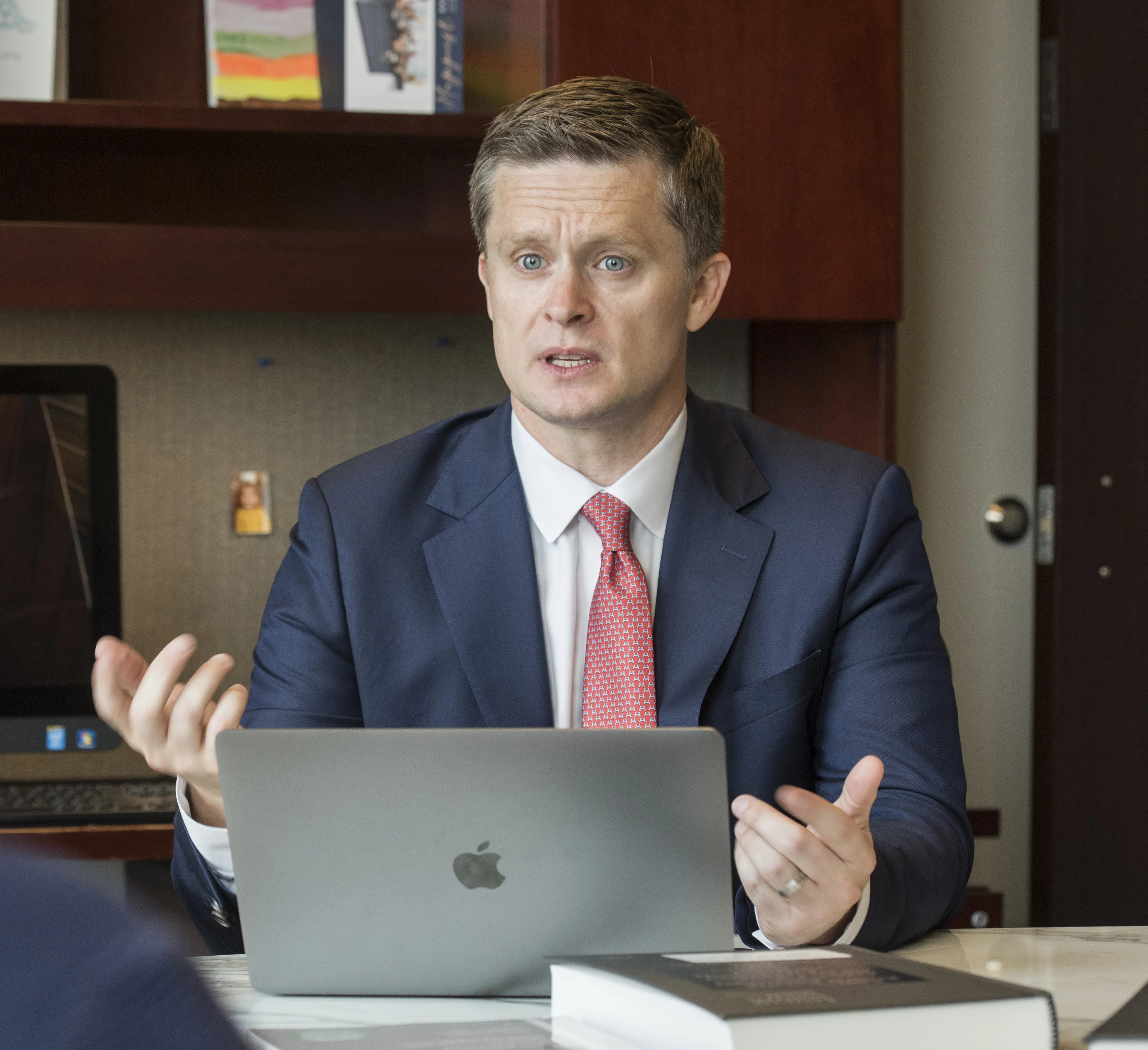
When the Temperature Rises
When companies first adopted ESG and DEI, these initiatives weren’t viewed as overly controversial. ESG was made to be palatable to a wide array of groups and individuals to bring as many people as possible on board, according to Assistant Professor Hajin Kim.
DEI was adopted by many corporations, universities, and the US government.
Now, both DEI and ESG initiatives are heavily scrutinized. President Trump issued an executive order to block enforcement of state laws promoting ESG policies, saying these laws conflict with national security and economic interest.
This new climate has led to vast changes for ESG and DEI in corporations. The Conference Board surveyed corporate sustainability and ESG executives and found that 65 percent have already experienced noticeable backlash toward ESG efforts from advocacy groups and federal policymakers. Multiple private organizations have also rolled back their DEI efforts, including Walmart, McDonald’s, and Target.
Kim said that those companies that stick with the efforts they adopted—especially when willing to face government backlash—may earn more trust from those who support these policies.
For example, Costco shareholders voted to stick to their DEI commitments and saw sales rise 7 percent from the previous year. Apple shareholders also voted to keep DEI, though CEO Tim Cook warned that the program may need to change as the legal landscape changes.
“The positive side of the backlash is maybe this gets rid of virtue washing,” Kim said. “We get stronger signals in the market because not everybody is saying that they’re doing good. If people say that they’re doing good, you feel like it’s a more credible signal because they’re saying that in an environment where they may get targeted or punished.”
What Should C-Suites Do?
Ultimately, Ginsburg and Casey’s published piece in The New York Times advised corporate leaders to “keep their mouths shut.” Unless the company or executive has a reason to speak up on something that directly affects business, having a norm of “institutional neutrality” would make it easy to stay silent on hot-button issues.
“The lesson has become even more important with the recent gravitation of some corporate leaders toward President Trump,” they wrote. “Such public fawning, which would have been unthinkable just a few years ago, demonstrates how unprincipled and fickle corporate political positions have always been.”
But sometimes, corporations have a good reason to speak out. Ben and Jerry’s has a long history of being involved in corporate speech in favor of social justice—cofounder Ben Cohen was arrested earlier this year during a protest at the US Senate—and their brand has remained strong. In a 2008 article on corporate philanthropy and market altruism, Henderson and Anup Malani, the Lee and Brena Freeman Professor of Law, noted that corporations that do altruistic acts or express a point of view allow stakeholders to support businesses that support causes they favor.
“Staying quiet on issues may pay off in the short term,” said Kim, “but taking stands on bigger issues may lead to positive long-term results. For example, if a company wants to point to a bigger societal issue through its products, such as Patagonia’s environmental work, that may lead to a better corporate reputation.”
The main issue corporations face on free expression is navigating the path of disagreements between stakeholders, according to Casey. There will always be hard cases on the margins; stakeholders may disagree with what a corporation has expressed, even if it pertains to business. But if the corporation walks back what it said, it makes the company look disingenuous, Casey noted. That’s why speaking out can be a risk and why having a policy of staying silent on most issues can be freeing, he added.
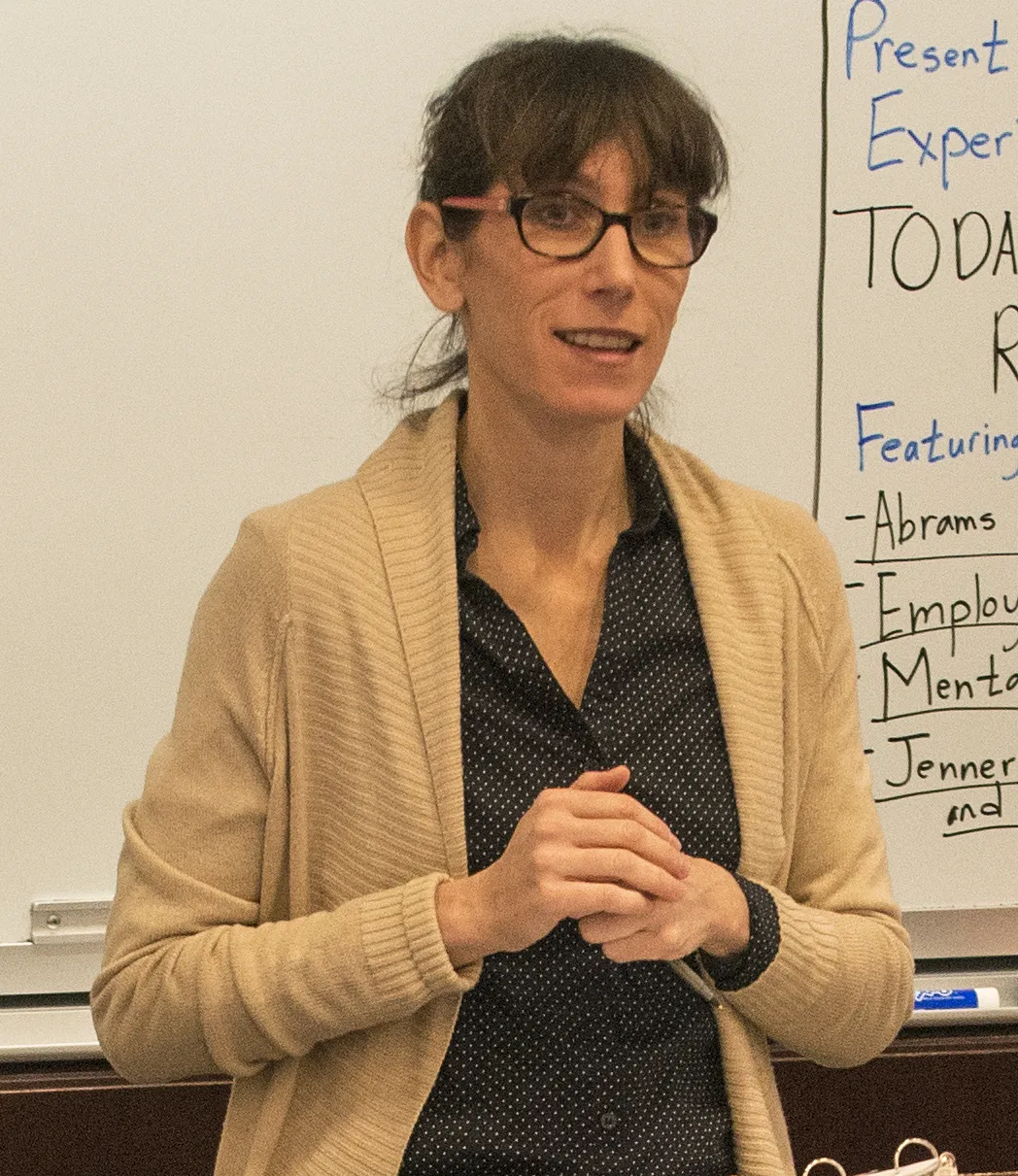
“The problem is when the government is such a major player … When it finances so many projects, when it does business with so many private actors, and when it has such a forceful bully pulpit, maintaining these formal divisions is not always enough to fully protect the independence of the private sector.” Genevieve Lakier
“But it must be done consistently for it to truly be freeing, otherwise the silence on certain issues stands out,” Casey said.
Lakier pointed out that staying neutral comes with a cost of its own. The 2025 Edelman Trust Barometer found that 53 percent believe that if a brand is not mentioning what it’s doing to address societal issues, they assume it’s doing nothing or hiding something, with 51 percent saying that they would be less likely to buy from that brand.
Henderson said that while institutional neutrality can be good for some companies, it isn’t always the answer.
Neutrality has long worked for Michael Jordan and his brand. Henderson recalled Jordan once declined to get involved in a political race in North Carolina, saying, “Republicans buy shoes, too.” On the other hand, Henderson continued, corporations exist to create value and serve stakeholders, and sometimes those interests are best served by expressing a viewpoint.
The ultimate decision on expression must come from the CEO and board of directors, Henderson said. CEOs must make an informed decision on expression that has no conflict of interest, rather than simply abiding by the emotion of the moment.
“The bottom line is that companies are going to make a lot of mistakes, because they are faced with something that’s new,” Henderson said. “There’s no one in the boardroom who is skilled in thinking about these issues, because they’ve never faced issues like this before.”
“The bottom line is that companies are going to make a lot of mistakes, because they are faced with something that’s new. There’s no one in the boardroom who is skilled in thinking about these issues, because they’ve never faced issues like this before.” Prof. M. Todd Henderson

Where Corporate Speech Could Go
Ginsburg predicted that companies will speak out less often in the coming years, whether they buy into institutional neutrality or not. Because of the potential social and political repercussions, he believes that this will be a time when fewer corporations choose to express their opinions.
“The threat of unfavorable regulatory treatment from this administration makes it a tough environment to do business right now,” Ginsburg said. “Being a CEO is a harder job than ever before.”
Ultimately, Henderson believes that capitalism will serve as a force of neutrality. Sometimes, a product is just a product—no need to attach a message—and he believes that society would be better if political speech and commerce were more separate.
Meanwhile, Lakier believes that the future of free speech for corporations has two potential paths to follow. On one path, greater limits are imposed on a government’s ability to demand political agreement from the private sector. On the other path, government control of expression expands, undermining the independent marketplace of ideas the First Amendment is supposed to protect.
As corporations currently have strong First Amendment protections, Lakier believes they should not be afraid to use them. “Appeasement is not a good strategy for corporations, universities, or individuals in a free society, so I would suggest that corporations commit to higher values,” she said.
Still, as the varying faculty voices on this issue amply demonstrate, whether and when corporations should speak on issues of the day is likely to remain a hot topic for some time. Perhaps the biggest takeaway is that there is no one-size-fits all approach.
For some companies, institutional neutrality may offer a principled way to avoid the political crossfire; for others, engaging publicly may align with their values, stakeholders, or long-term strategy, creating a strong business case not to remain silent. The ongoing challenge for corporate leaders is to navigate these choppy waters thoughtfully—grounding their decisions in clear principles, informed judgment, and a recognition of the risks and responsibilities that come with corporate speech.





